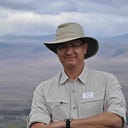Origins of Christian Beliefs: a geohistorical investigation
The Challenge of the Information Age: For Christians who believe in God, in Jesus and in the Bible, the explosion of knowledge since the 20th century has been both a blessing and a challenge. The Information Age we now live in allows us to check the facts to assess our beliefs. We are better equipped to do much needed soul-searching. We can travel, read and watch TV to know how huge and diversified the world is, with over 7 billion people just like us. History allows us to notice that beliefs change over time in response to greater knowledge.
Evolution of Beliefs: There is no shame in changing what we believe about God. Evolving beliefs can be a good thing, ask the former slaves or anyone oppressed by erroneous beliefs. Indeed, both Jesus and Paul made contributions by pushing for change in Jewish beliefs. The history of science, technology and medicine led us to abandon past prejudices and change the way we see God’s creation. For example, when science shows that there are no genetic markers for race, it forced us to face up to our deep-seated racial prejudice. When technology allows us to ‘see’ the world from our living room, it changed the way we think of what it means to care for our neighbors as images of human suffering confront us daily. Now we understand the radical depth of Jesus’ teaching to “love our neighbor as yourself.” When medicine shows that illness results from the failure of our immune system, we stopped blaming personal sin for illnesses and work to find cures. Discoveries that mental illnesses are directly linked to biological causes force us to rethink the very definition of sin.
These developments in science that influence theology raise important questions for every Christian who proclaims the Gospel of Jesus Christ: How did increasing knowledge change the way Christians interpreted God’s revelation? How has the Church’s teachings evolved and why are they still not unified on many issues? What are the religious and spiritual implications of your personal geohistory, i.e., if you were born and lived in a different time and location, how would your beliefs about God, Jesus and the Bible be different?
Origins of Christian Beliefs Seminar is a 15-hour course spread over 5 Saturdays during which we shall examine some of the 16 Christian doctrines. Check it out here:
Our guide will include the Apostles’ Creed, first mentioned by Bishop Ambrose in 390 AD. The longer version we now use only emerged in the 7tht century, with the addition of the words “maker of heaven and earth”. Most modern churches draw from some elements of this summary of the faith. Such creeds were used by the church before the New Testament was in some sense, finalized. The earliest Christians had no idea of a “New” or “Old” Testament. Church teaching was largely oral and few could read or write.
Did you know that … the account of Adam and Eve in Genesis 3 does not mention any “Fall” or “sin” (which first appears in Genesis 4), the term Antichrist appears only 4 times in the Bible and not once in the book of Revelation (no ’s’) and the Jewish faith evolved dramatically from Abraham to Moses to David to Jeremiah and finally to Jesus, before Paul shaped what became a distinct Christianity by the 4th century. No doctrine has been static, each is dynamic and changes in response to increasing knowledge (science). Is the resurrected body akin to cerebral cybernetics, where human memory and consciousness is embedded into an android body which can be repaired and updated forever?
6 Questions journalists ask — the who, what, when, where, why, and how. For the doctrine of creation, we might ask:
1. What does the doctrine mean, is it authoritative, i.e., a nonnegotiable, and what are its implications and consequences for our daily lives?
2. When was the doctrine formulated and is it historically universal across the past 13.7 billion years and into the future?
3. Where was the doctrine formulated and is it geographically universal across the universe’s every inhabitable planet?
4. Who is the source of this doctrine?
5. Why was this doctrine formulated?
6. How was this doctrine formulated, taught, transmitted and revised?
The live classes will be recorded on audio and video. Whether you live here in New York, Jersey City, Boston, San Francisco, Houston, Singapore, Melbourne, London or even if you read this from Ulaanbaatar, anyone can join the course even after we officially start on October 28th because you may study as your own pace. As a participant, you have permanent audio and video privileges. Your support goes towards helping to provide true academic freedom and investigation with integrity. We ask pertinent questions even if the answers are inconvenient. We are thus independent of denominational pressures and answer only to God and directly to you, our financial supporters in ministry.
Many of you asked about this topic over the years and may think, “I’ll read the book when Ron publishes it.” No, you won’t. Too many pressing distractions make the urgent trump the important. With 16 doctrines, it will be 5 years before this specific seminar will be repeated. This is an ideal course for ministers, missionaries, evangelists and most importantly, lay believers who otherwise have limited access to an interdisciplinary scholar in active service. Sign up even if your schedule does not permit you to attend the live sessions.
